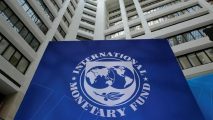Privacy Overview
This website uses cookies so that we can provide you with the best user experience possible. Cookie information is stored in your browser and performs functions such as recognising you when you return to our website and helping our team to understand which sections of the website you find most interesting and useful.


















22, September 2023
Data base of Atrocities Releases Eight Verifications of Explosions, Burnings, Arbitrary Arrests against Civilians in Cameroon 0
Both the Cameroon security services and separatist insurgents are implicated in atrocities in the long-running Anglophone conflict, according to reports released today, International Day of Peace. The reports have been compiled and verified using geolocation, based on videos, photos, satellite imagery, eyewitness accounts, social media posts, and news items.
The Cameroon Database of Atrocities works with the Centre for Human Rights and Democracy in Africa (CHRDA) to confirm each atrocity took place at a specific location and date. The eight new reports join a further 40 reports already compiled by the Database. It is hoped that the existence of the reports may discourage further acts of violence, end the impunity with which the perpetrators act, and one day be used in bringing these actors to justice.
The eight new reports confirm the following:
–Cameroon government forces arbitrarily burned multiple civilian homes in a village;
–Government forces arbitrarily arrested no fewer than 42 to 85 youths in a village, who are still detained months later;
–An elite government soldier violently harassed young men at several locations over several years;
–Anglophone separatist fighters burned several trucks of civilian foodstuffs;
–Separatist fighters detonated explosives at an outdoor market and at a race, killing one mother and injuring 19, including athletes running the race;
–Separatist fighters burned a school, a mayor’s house, and a church, while also taking hostages for ransom at the church, who were released one month later.
Cameroon’s so-called “Anglophone Crisis” began more than six years ago with peaceful protests, which became violent after the government responded with excessive force and arrested moderate protest leaders.
This led to a separatist movement calling for independence of Cameroon’s two English-speaking regions. The separatists’ 2017 unilateral independence declaration provoked brutal crackdowns from Cameroon government forces. Soon the crisis escalated into an armed conflict, with the Cameroon military fighting armed separatist groups, and civilians caught in the middle.
Since then, the Anglophone regions have witnessed widespread atrocities by both sides, causing over 6,000 deaths, 1.5 million displaced, and leaving 700,000 children out of school for years. Both sides have behaved with impunity.
Pope Francis has repeatedly urged the Cameroon government to act to stop the violence, but there has been little interest in diplomatic activity. Earlier this year, the government backed away from potential peace talks facilitated by Canada.
Commenting on the reports, CHRDA’s president, Barrister Felix ‘AgborBalla’Nkongho said: There is a need for accountability and an end to this culture of impunity. It can only be done when we monitor, document and report these gross and egregious crimes.
Dr. Christopher Fomunyoh, Senior Associate and Regional Director forAfrica at National Democratic Institute in Washington, D.C., stated:
These data reports confirm that six years on, deaths and destruction are still a regular occurrence in the Anglophone conflict zones. The vicious cycle of violence and retaliation with impunity continues to foster suffering and deprivation, especially among civilian populations.
They’re yet another warning to those with guns that their actions are being fully documented and, ultimately, individuals and their sponsors and accomplices will be held to account someday. We hope that day comes soon so this well-documented evidence of atrocities can serve its purpose.
This release on the international peace day also coincides with the General Assembly of the United Nations currently holding in New York as world leaders lament the flurry of global crises and insecurity. One very significant takeaway from these reports is to put friends of Cameroon and the international community on notice that human life is not safe anywhere if it is not safe everywhere: underreported crises and conflicts such as is the case in Anglophone Cameroon deserve as much condemnation and efforts to find resolution through third-party-led mediation or negotiations, as more well-known conflicts.
Source: www.CameroonPeaceJustice.ca